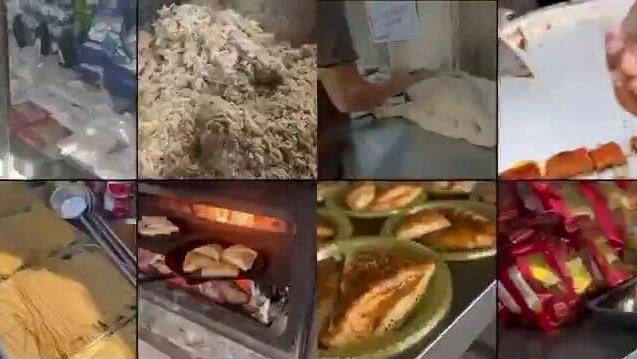Food supplies across the Gaza Strip
(Video: COGAT)
IDF accuses IPC of methodological flaws
According to COGAT, IPC cut the required percentage of severely food-insecure households from 30% to 15% “for this report alone” and ignored mortality rates entirely — changes Israel called “deeply unprofessional and politically motivated.”
Israel cites large-scale humanitarian aid
Between January 19 and Friday— as part of a hostage-release deal — Israel allowed 25,200 trucks loaded with food, water, medicine and shelter supplies crossed into Gaza. In May alone, over 10,000 trucks delivered aid and COGAT reported a “sharp drop in food prices” in local markets since then.
Additionally, more than 90 community kitchens are reportedly operating across the Strip, serving over 600,000 meals daily and 2.2 million weekly food packages have been distributed since May.
While Israel disputes the findings, top UN officials argue that Gaza faces a severe humanitarian crisis. UN High Commissioner for Human Rights Volker Turk said starvation in northern Gaza is a “direct consequence of Israeli government actions” and warned that deaths caused by hunger “may constitute war crimes.”
Israel added it has also facilitated 48,000 tons of medical supplies entering Gaza and expanded access to water through pipelines from Israel, desalination plants and emergency infrastructure funded by the UAE. More than 2,300 humanitarian aid packages have been air-dropped in coordination with 12 countries.
Criticism of IPC’s reliance on Hamas-linked sources
COGAT accused IPC of basing its conclusions partly on unpublished phone surveys, UNRWA assessments involving Hamas-affiliated staff and data from “local organizations with vested interests.”
The response claims IPC ignored recent improvements in aid delivery and presented “alarmist projections” despite what Israel calls a “significant positive trend” in food availability.
Israel also criticized the IPC for linking aid access to a permanent ceasefire, calling it “an overtly political stance, not an objective assessment.”
“The IPC’s report represents yet another example of an international institution abandoning its mandate in favor of politicization, effectively serving Hamas’s propaganda campaign,” COGAT’s statement read.
Israel’s Coordinator of Government Activities in the Territories, Maj. Gen. Ghassan Alian, said: “The IPC report is based on partial and unreliable sources, many linked to Hamas, and ignores Israel’s extensive humanitarian efforts. We expect the international community to examine the full data before echoing false claims.”






